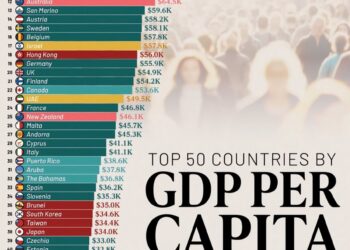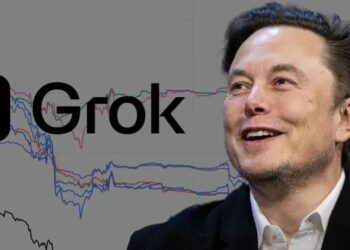Select Language:
Top Geniuses of 2025: Exploring the Minds with the World’s Highest IQ Scores

1. Dr. YoungHoon Kim from South Korea – IQ 276
Leading the list is Dr. YoungHoon Kim, who boasts an extraordinary IQ score of 276. His exceptional intelligence has placed him at the pinnacle of academic achievement and innovative thinking. Kim’s groundbreaking research spans multiple disciplines, with contributions that could reshape our understanding of complex scientific phenomena.
2. Marnen Laibow-Koser from the United States – IQ 268
Next up is Marnen Laibow-Koser, an American prodigy recognized for his extraordinary problem-solving skills. His sharp intellect has earned him a reputation as one of the most brilliant minds, constantly pushing the boundaries of knowledge in STEM fields.
3. Ainan Cawley from Malaysia – IQ Range 263-349
Ainan Cawley remains a fascinating case in high IQ circles. His intelligence assessment ranges significantly, with some estimates reaching as high as 349. A child genius, Cawley demonstrated prodigious talent at an early age, mastering complex mathematical concepts before turning five.
4. Carl Gauss (Germany) – IQ Estimate 250-300
The legendary mathematician Carl Gauss, often called the “Prince of Mathematicians,” has an estimated IQ range of 250 to 300. His revolutionary work in number theory, astronomy, and physics continues to influence scientific thought centuries after his lifetime.
5. Marilyn vos Savant from the United States – IQ 228
Famous for holding the Guinness World Record for the highest IQ for decades, Marilyn vos Savant’s IQ of 228 exemplifies her exceptional logical and analytical skills. Her insights have shaped topics in logic, mathematics, and problem-solving.
6. Christopher Hirata from the United States – IQ 225
A prodigious physicist, Christopher Hirata’s IQ of 225 reflects his mastery over complex scientific theories. By his early teens, Hirata was advising NASA and making profound contributions to astrophysics.
7. Terence Tao from Australia/United States – IQ Between 211 and 230
Often dubbed the “Boy Wonder,” Terence Tao’s IQ score sits within the 211–230 range. His prolific work in pure and applied mathematics has earned him numerous accolades and recognition globally.
8. Johann Goethe (Germany) – IQ Estimate 210-225
Poet, playwright, and scientist Johann Goethe had an estimated IQ between 210 and 225. His literary masterpieces and scientific explorations showcase a mind equally gifted across creative and analytical domains.
9. William Shakespeare (United Kingdom) – IQ Around 210
The Bard’s genius is often underestimated; however, assessments suggest William Shakespeare’s IQ was around 210, reflecting his unparalleled influence on the English language and drama.
10. Nathan Leopold (United States) – IQ 210
Notorious for his moral and psychological complexity, Nathan Leopold’s high IQ (210) underscores the profound intertwining of intelligence and personal circumstances, making his story a subject of psychological analyses.
The Realm of Genius: Historical and Modern Legends
| Person | Estimated IQ Range | Notable Contributions |
|---|---|---|
| Edith Stern (USA) | 203 | Child prodigy, mathematician |
| Michael Kearney (USA) | 200-325 | Child graced with exceptional academic achievements from a young age |
| William Sidis (USA) | 200-300 | Known for early mathematical brilliance and high IQ estimates |
| Kim Ung-Yong (South Korea) | 200-210 | Child prodigy with groundbreaking scientific achievements |
| Hugo Grotius (Netherlands) | 200 | Father of international law |
| Dylan Jones (USA) | 200 | Young scholar with extraordinary intellect |
| Michael Grost (USA) | 200 | Mathematician and psychologist |
| Nadia Camukova (Russia) | 200 | Renowned for her extraordinary reasoning abilities |
| Sho Yano (USA) | 200 | Violin prodigy and scientific researcher |
| Francis Galton (UK) | 200 | Pioneer in intelligence testing and eugenics |
| Thomas Wolsey (UK) | 200 | Historical figure with notable strategic intellect |
| James Maxwell (UK) | 190-205 | Father of electromagnetism |
| Rudolf Clausius (Germany) | 190-205 | Developed the second law of thermodynamics |
| Voltaire (France) | 190-200 | Enlightenment philosopher and writer |
| Thomas Young (UK) | 185-200 | Genius in physics and linguistics |
| Ettore Majorana (Italy) | 183-200 | Theoretical physicist and mathematician |
| Gottfried Leibniz (Germany) | 182-205 | Co-inventor of Calculus |
| Leonardo da Vinci (Italy) | 180-220 | Renaissance polymath |
| John Stuart Mill (UK) | 180-200 | Philosopher, political economist |
| Leonhard Euler (Switzerland) | 180-200 | Mathematician and physicist |
| Galileo Galilei (Italy) | 180-200 | Father of modern science |
| Marie Curie (Poland/France) | 180-200 | Pioneering research in radioactivity |
The Next Generation of Geniuses
The 2025 list also features younger prodigies like Christopher Langan (IQ 174-210) and Hypatia of Alexandria (IQ estimated between 170 and 210). Their brilliance continues to shape fields ranging from philosophy to astrophysics.
The extraordinary case of Nikola Tesla, with an IQ estimated between 160 and 310, demonstrates the immense potential of certain individuals, blurring the lines of traditional IQ measurements.
The Significance of IQ in Understanding Genius
While IQ tests provide insight into certain cognitive abilities, such as reasoning, problem-solving, and analytical thinking, they are just one measure of genius. Many historical and modern figures demonstrated that intelligence manifests in diverse ways, including creativity, emotional insight, and practical skills.
Conclusion
As the world advances into 2025, understanding the minds behind these extraordinary IQs not only inspires innovation but also encourages a broader view of what it means to be a genius. From historic polymaths like Leonardo da Vinci to contemporary physicists like Terence Tao, their achievements remind us that brilliance takes many forms, shaping our world in ways words can scarcely describe.







